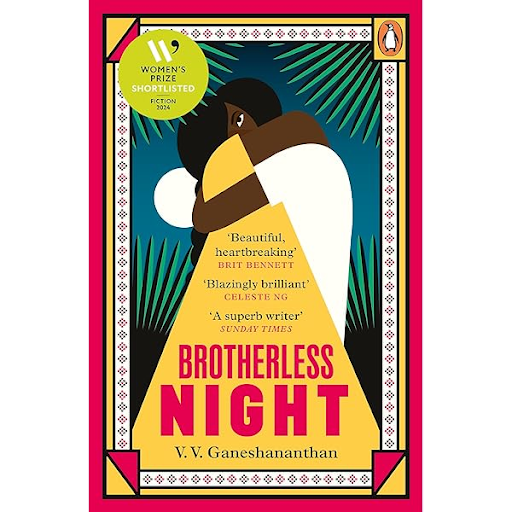This is post 6 / 6 of the Shadowing WPF 2024 series.

Doctor, Tiger, Soldier, Spy
As soon as we learn that the Tamil protagonist of this historical fiction, Sashi Kulenthiren, has four brothers and that the novel is set during the Sri Lankan civil war, we know this is going to hurt, and it does. It stings like ‘A Fine Balance’, but as we are repeatedly told by our narrator, we ‘must understand’, she needs us to comprehend, to hear her bear witness.
It’s worth asking why, of course. Why read novels which document and dramatise relentless brutality, hardship and loss? I mean those novels that discuss human pain not just up close and personal, which most do, but en masse and in distant lands. Similarly to Anne Enright in ‘The Wren, The Wren’, Ganeshananthan draws our attention to the importance of words, but focuses on reportage rather than poetry. She explains the essential role played by those documenting human rights abuses and the realities of conflict. As a child, I rarely saw my father as he was frequently absent from home, playing his part in exposing the truth of violent conflict as a foreign correspondent. Reading this novel reminded me of the context for that work.
I understand the need for news, but what about novels about news? Perhaps, as in the case of the Post Office Horizon scandal, drama can be better at galvanising us into necessary change as many of us are better at identifying with pain, rather than distancing ourselves, when material is presented in narrative, intimate rather than factual, documentary form. It seems darkly ironic that fiction can be more powerful than non-fiction when it comes to such matters. Ganeshananthan’s sustained interest in the intersection between literature and the news, and her sixteen years of research into the civil war give her a unique ability to effect this. It is partly about bearing witness and partly it literally does so, since so much of it is non-fiction, reading like a memorial as well as a story.
The novel exposes the dehumanisation of close family members pulled into opposition with one another by violence witnessed and committed, loyalties divided and betrayed, ideology and anger. A group of people with one cause - to study hard and become professionals - doctors, engineers - become soldiers, tigers, spies, hunger-strikers, rebels. We see how family ties are exploited by militant groups and how the behaviour and morality of government, separatist and Indian ‘peacekeeping’ soldiers become increasingly degraded.
American writer V V Ganeshananthan captures the tender, strained love between K and Sashi, and our interest in whether they will ever realise their relationship is layered with larger-scale symbolism - can anything, anyone, fulfil their potential, live a present, emotional life, after all the harm done by the civil war? In this sense its content overlaps with another shortlisted novel, ‘Enter Ghost’. Although there are uplifting, terrifying moments of successful resistance like the mothers’ march, we are left with a stronger sense of inevitability and futility. It was interesting to read Lenin M Sivam’s Eelam Tamil response to the book which, while generally positive, had serious reservations about what he perceived as an unfairly anti-Tamil stance and misrepresentation of the hunger strike.
The author creates a sense of universality often found in the best historical fiction, evoking a time and place - Jaffna in the 1980s and 90s - while also revealing personal tragedies and endeavours that echo with comparable events in other times and places. Much like Lescure in ‘River East, River West’ and Kilroy in ‘Soldier Sailor’, she achieves both intense emotional response for the reader. However, she also achieves distanced, factual dignity for the narrator, pointing out that ‘because I’m sitting here and you’re sitting there, you expect me to explain.’
This could easily win the Bessie for sheer power. However, the judging criteria of excellence, originality and accessibility are difficult to combine. Sometimes, originality and accessibility can seem at odds. This novel is more accessible than original in style: its most unusual element is the refrain, when it reaches out from first person to second and addresses readers directly. Its subject is more original, and its angle, and it certainly achieves excellence, but my prediction is that the prize is awarded to something more exploratory in a literary sense.